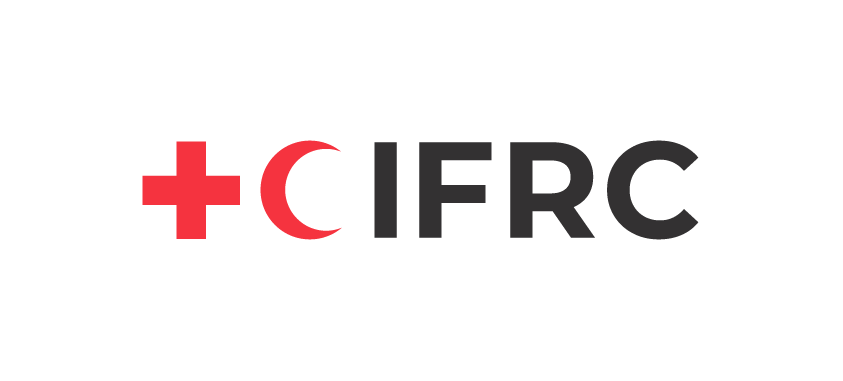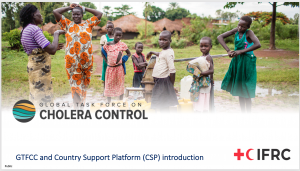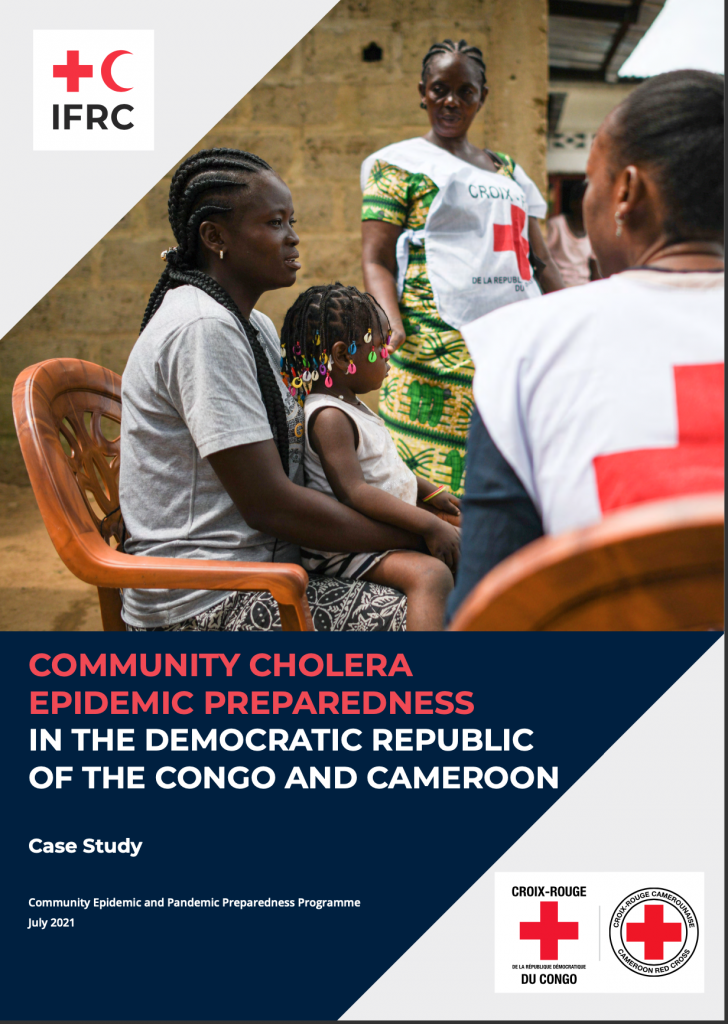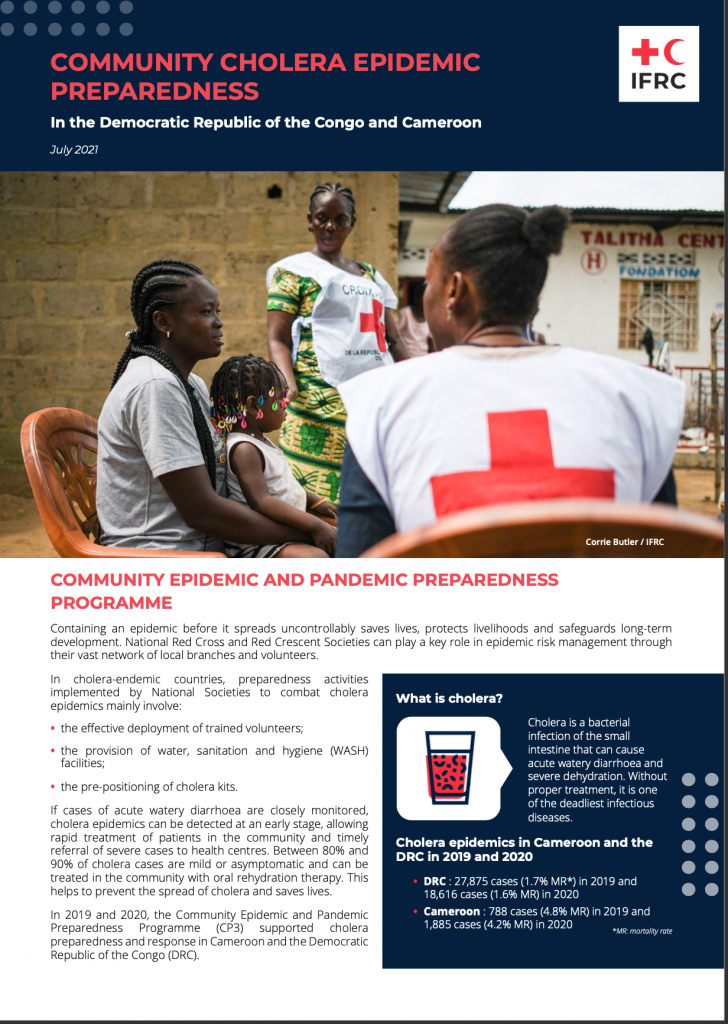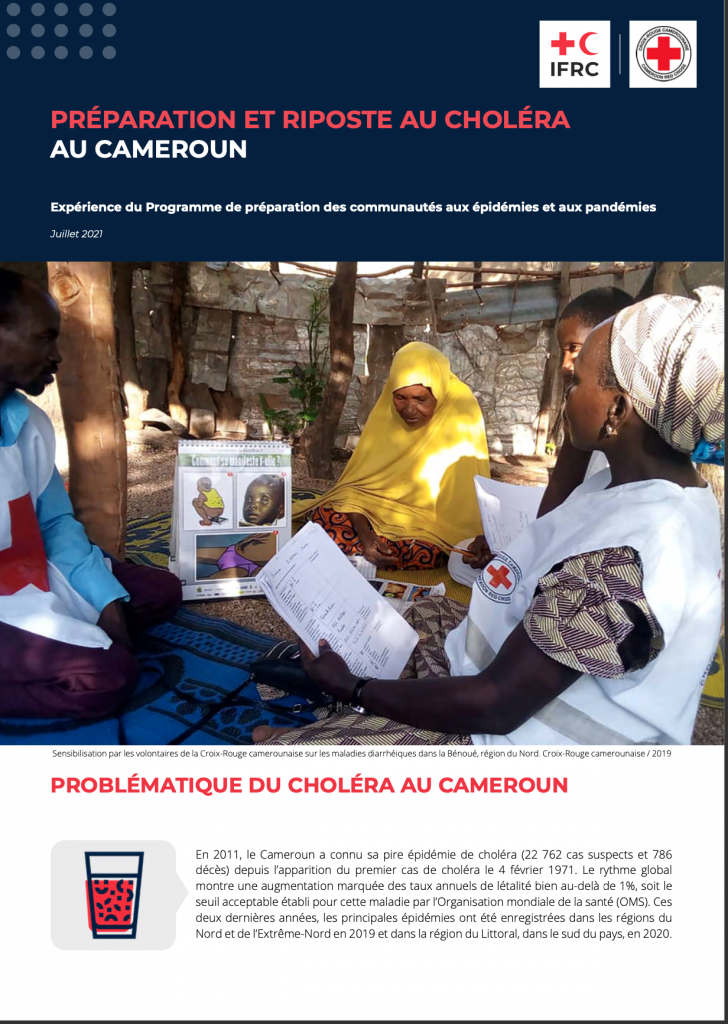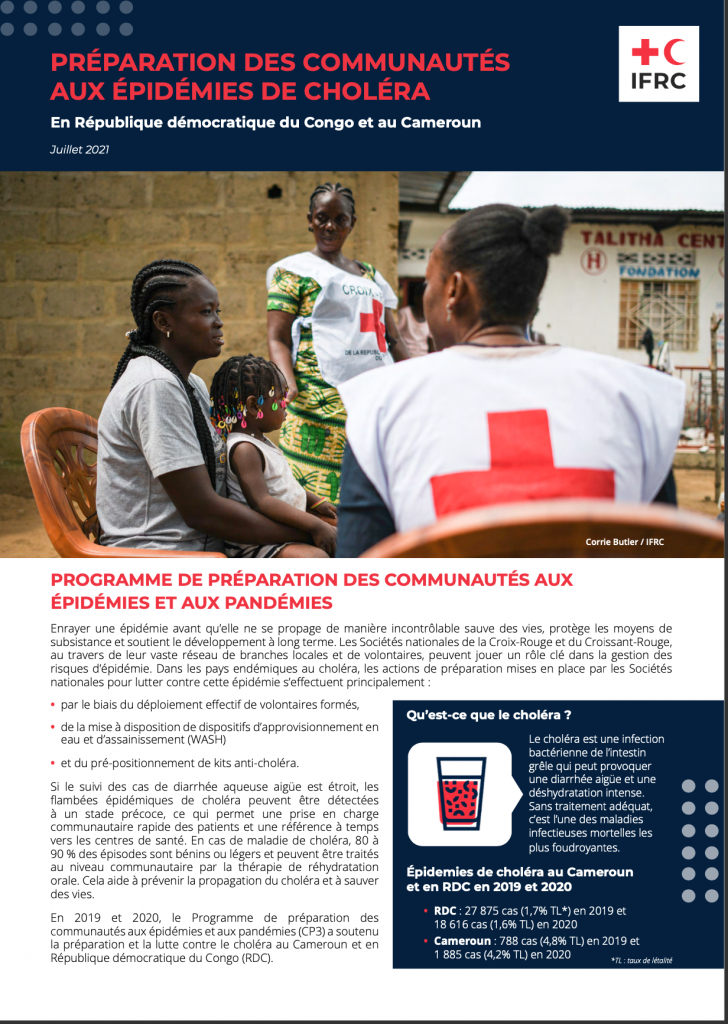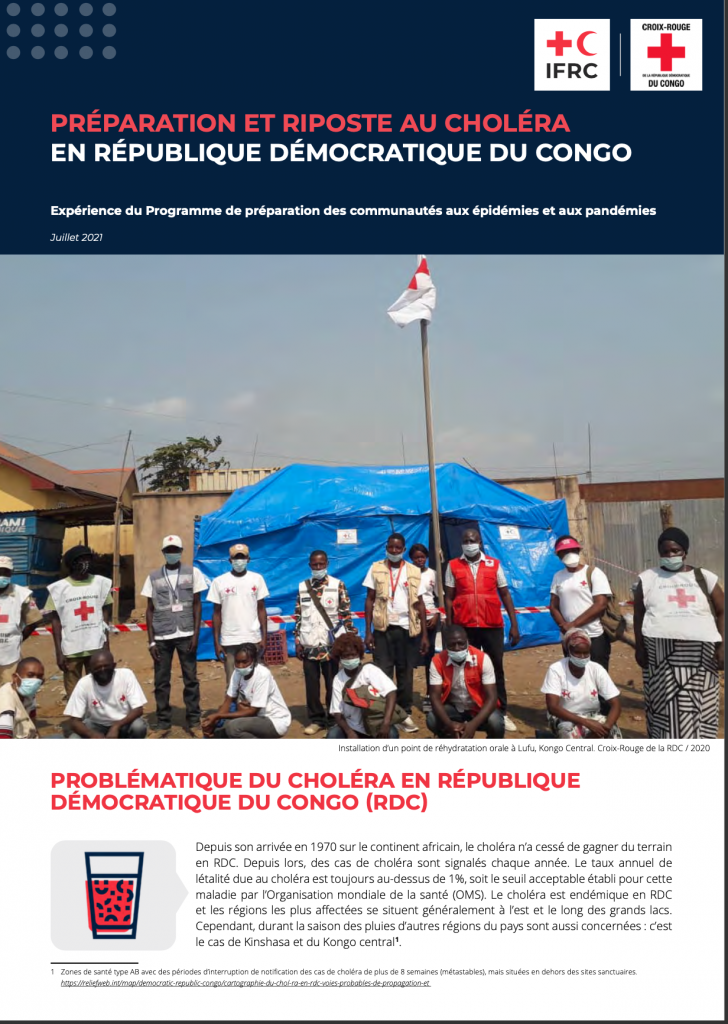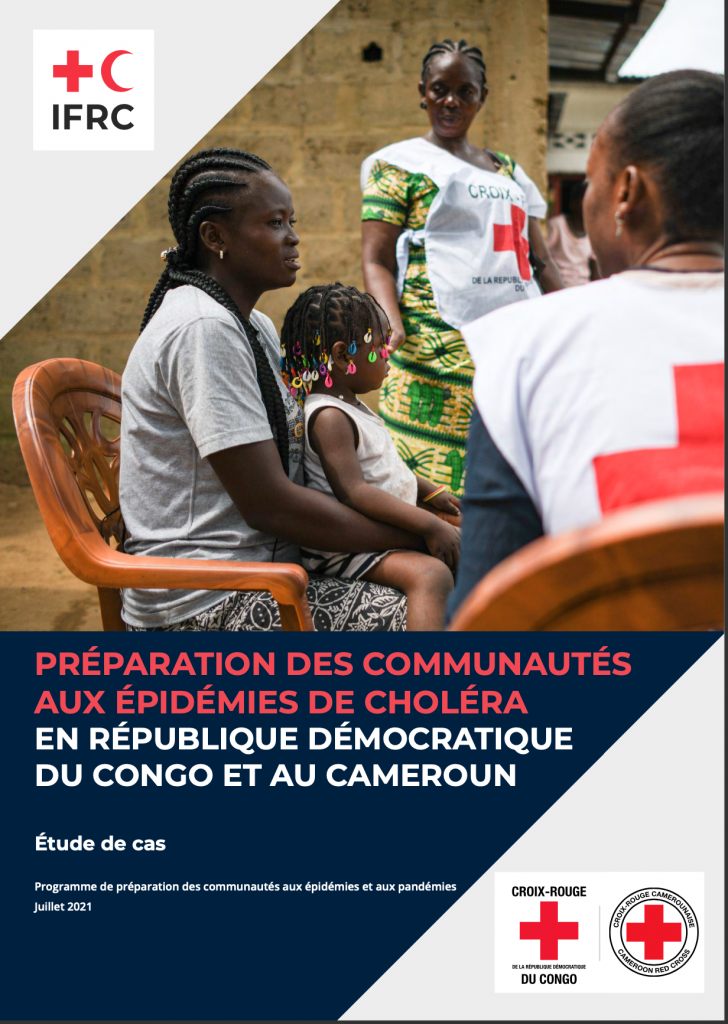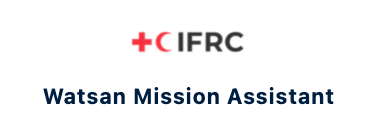
Cholera
Content
- Guidelines and tools
- Red Cross Red Crescent Guidelines and tools
- External tools
- Cholera Country Support Platform (CSP)
- Learning resources
- Red Cross Red Crescent Learning resources
- Cholera training packages
- Branch Outbreak Response Training (BORT)
- Oral Cholera Vaccine (OCV) Training
- Oral Rehydration Therapy (ORT) ToT
- Cholera videos
On this page you will find a number of Red Cross Red Crescent guidelines and tools for cholera, information about the Cholera Country Support Platform (CSP), and important training packages for cholera response (all available for download).
Guidelines and tools
Red Cross Red Crescent Guidelines and tools
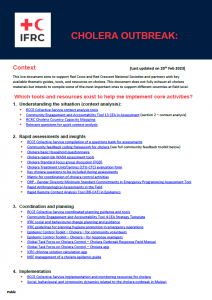
Cholera Resource Guidance
This IFRC document lists key available thematic guides, tools, and resources on cholera. Current as at February 2023.
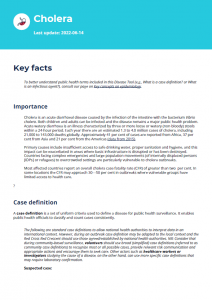
Cholera Disease Tool - IFRC ECV Toolkit
https://epidemics.ifrc.org/manager/disease/cholera
Cholera country support platform
Introduction: What is the CSP?
The Global Task Force on Cholera Control (GTFCC) – a partnership of over 50 organizations – is working closely with countries
to achieve a 90% reduction in cholera deaths and eliminate cholera in 20 countries and by 2030. By scaling up technical assistance and
offering tools and recommendations to support the development of National Cholera Control Plans (NCPs), the GTFCC has contributed to
enabling national governments to take the lead in implementation.
In accordance with the global roadmap launched in 2017, GTFCC partners have been working together to establish a support system for
cholera-affected countries. To accomplish this the GTFCC is establishing the Country Support Platform (CSP). The CSP will provide multisectoral operational and technical support as well as the advocacy, coordination and policy guidance necessary for countries to develop, fund, implement
and monitor their NCPs effectively.
For more information please contact: countrysupportplatform@ifrc.org
The International Federation of Red Cross and Red Crescent Societies (IFRC), headquartered in Geneva, Switzerland, will host the GTFCC Country Support Platform. With a grant from the Bill & Melinda Gates Foundation (BMGF), IFRC will establish and manage the CSP on behalf of the GTFCC for an initial period of 3 years commencing October 2020.
Learning resources
Cholera training packages
IFRC Branch Outbreak Response Training (BORT) for cholera
What?
Training for branch staff and volunteers to respond to disease outbreaks to break transmission routes in health facilities, case households, communities and amongst the most vulnerable.
Format and length of training
Face to face, 4 days.
6 modules, with a mix of theory and practical exercises.
Competency level
Tier B (Able to carry out)
Key content / topics
Key topics include role of the Branch Transmission Intervention Teams; disease transmission routes; WASH interventions in health care facilities, households and community spaces; preparation, use and management of chlorine; and medium to long term interventions.
- BORT training manual (editable Word file)
- BORT training manual (PDF version)
- Full training package (Zip file) - including agenda, session plans, presentations, activities and materials
IFRC Oral Cholera Vaccine (OCV) Training for Volunteers
What?
Training for volunteers aims to provide NSs with the capacity to support both preventative and responsive OCV campaigns which governments have requested.
Format and length of training
Face to face, 1 day.
4 modules presented through power point and 5 practical activities.
Competency level
Tier B (Able to carry out)
Key content / topics
Giving cholera messages and information; giving information and answering questions regarding the vaccine and the OCV campaign; carrying out rapid WASH assessments of households; setting up and operationalizing vaccine centres and being involved in post campaign activities such as coverage and effectiveness surveys.
- IFRC OCV Training Overview
- IFRC OCV Field Manual for Volunteers (editable Word version)
- IFRC OCV Field Manual for Volunteers (PDF version)
- Full OCV training package (Zip file) - including manual, training modules, activities and reading
- The Story of Cholera video (English)
IFRC Oral Rehydration Therapy (ORT) Training of Trainers (ToT)
What?
Training for staff and volunteers in Oral Rehydration Therapy preparedness and response at branch and community level, to improve early diagnosis, treatment and referral of cholera cases.
Format and length of training
3 days face-to-face.
Two days theory/classroom, and one day practical simulation exercise.
Key content / topics
ORT Level 1 – cholera and cholera prevention, ORT at community level, reporting and logistics, cholera detection and alert, community mobilisation, stigma prevention and rumour management.
ORT Level 2 – Setting up an ORP and referral system, infection prevention and control (IPC).
Simulation – Installing an ORP, chlorine solution prepration and IPC practice, reconditioning of ORP kits.
- General information - agenda, and preparation and roll-out of the training
- ORT Level 1 Training Package, and Story of Cholera video (English), Story of Cholera video (Lap Kri), Managing dehydration video (English) - facilitation notes, presentations, training activities/quizzes, and resources
- ORT Level 2 Training Package - facilitation notes, presentations, training activities/quizzes, and resources
- Simulation - organization and monitoring, signs and reference cards, role play
- ORP Booklet & Reference Cards
- Useful documents
Complete training package (Zip file, with all files in 1 - 6 above)
Cholera videos
To include resources on this page, or for more information on IFRC initiatives please contact: Alexandra Machado or wash.geneva@ifrc.org
